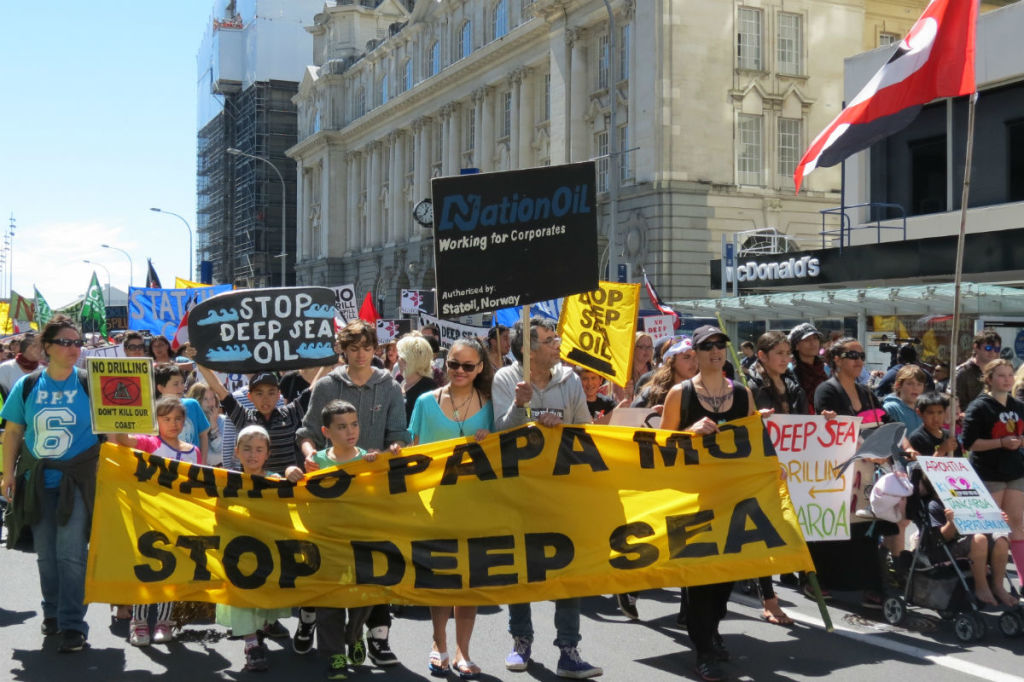 Pat O’Dea Mana News climate change editor
Pat O’Dea Mana News climate change editor
I tried to relate their protest against unconventional fossil fuels, like deep sea oil, to climate change, and the need to stop coal. The organisers shouted me down and telling me to “shut up”, and “keep to the subject”.
Last Tuesday I went to the anti deep oil drilling protest in Queen Street, where we marched up to the Sky City Convention Centre. After a number of speeches were given. We were all asked to hang around for the rest of the day outside conference to make a show that we were still there and not going away easily.
And that is what we did.
After about an hour of nothing happening, I asked if I could make a statement on the Auckland Coal Action campaign against the coal mine at Mangatangi. No one else was using the sound system and nothing else was happening. So they (reluctantly) agreed. Sensing the organisers suspicion, I tried to relate their protest against unconventional fossil fuels, like deep sea oil, to climate change, and the need to stop coal. The organisers shouted me down and telling me to “shut up”, and “keep to the subject”. Which I took to mean, only talk about the environmental risks posed by deep sea oil spills, and not the danger to the climate that such technologies pose. (Even though these risks had been fully covered already by all the previous official speakers). When in response to their shouted objections and heckling I said, “Even if we stop all unconventional fossil fuel technologies like deep sea oil, and fracking, and tar sands, and shale oil, there are enough conventional fossil fuel reserves to still destroy the climate.” I was immediately told to “get off” their sound truck.
After I spoke the crowd still sat around, no one got up to speak, nothing else happened, and people just started drifting away.
So what moved me to speak as I did, at the anti deep sea oil drilling protest?
Last year I went to a talk given by Green Party MP Gareth Hughes about the campaign against deep sea oil, that he gave at the Auckland Green Party HQ in Mercury Lane.
What I took to heart from Gareth Hughes speech that day, was this, he said, “If we really want to stop deep sea oil drilling we must fight it on climate change grounds.”
The reason for this, is that the evidence about climate change is so overwhelming that it cannot be refuted, by the oil companies.
In New Zealand objections based on climate change grounds are not allowed, by law, to be taken into consideration by New Zealand judges and courts when granting planning consents for new mining and drilling permits.
The evidence is so damning and the consequences are so terrifying, if this evidence were allowed to be heard, no new coal mines, or oil wells would ever be granted permits again.
So the government, at the behest of the oil and coal companies, have made it illegal for such evidence to be allowed in planning consent hearings.
My question is this: Why do we also publicly censor ourselves over these matters?
Pat O’Dea is the Mana spokesperson for climate change issues.

